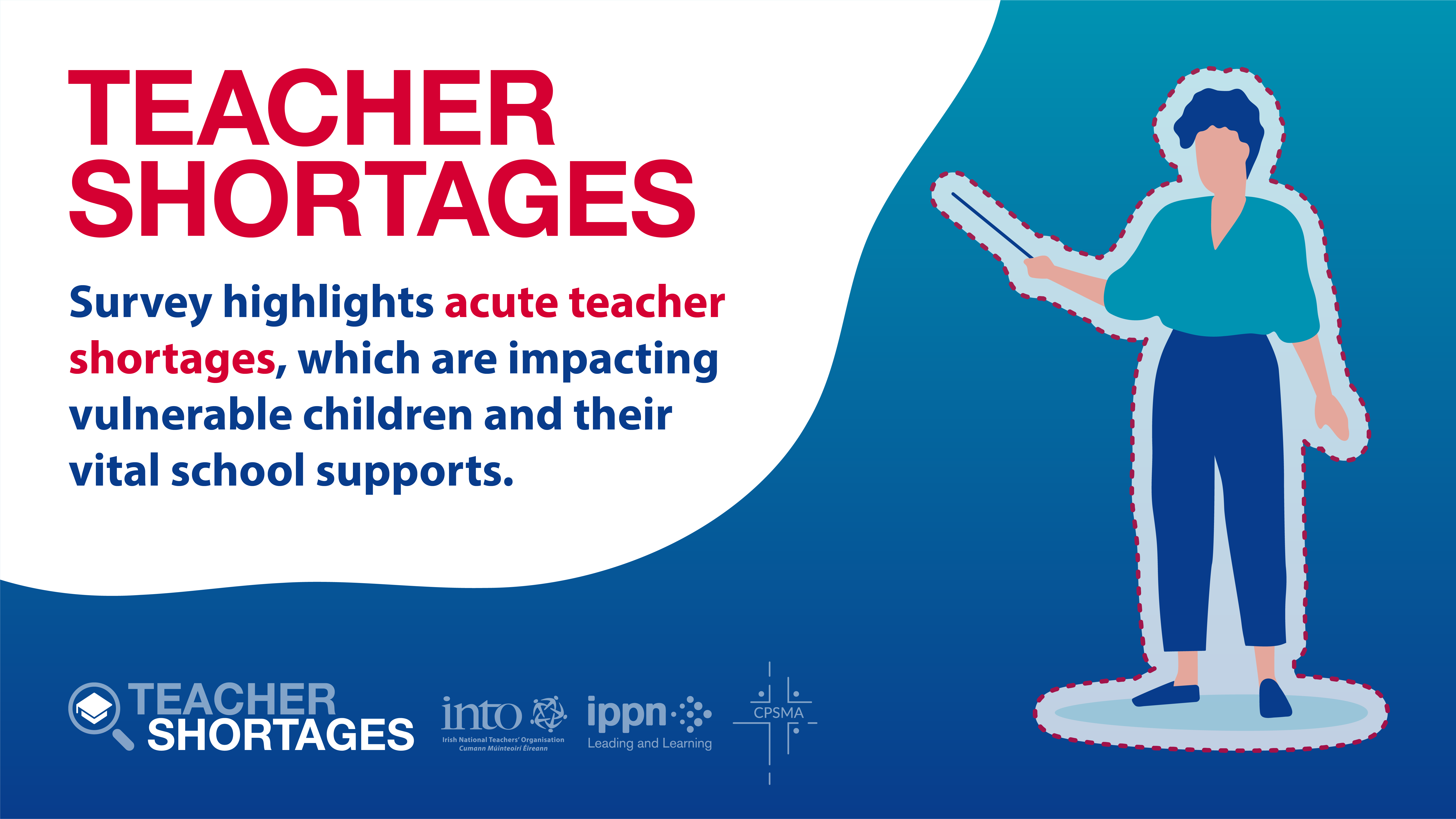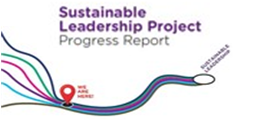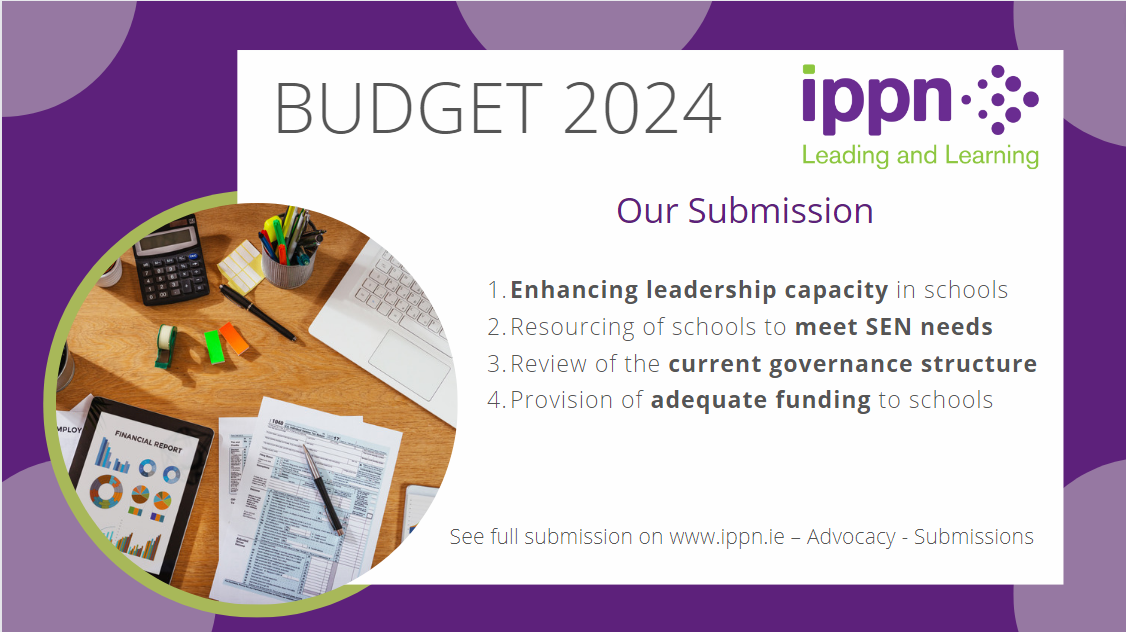IPPN Advocacy - Making your role more doable

The purpose of this member communication is to ensure that you are kept informed with regard to the focus of IPPN’s advocacy work and to what has been happening in terms of progress and developments in relation to:
1. Making your role more doable
2. Meeting Special Education Needs
3. School Funding
4. Extension of the Small Schools Action Research Project
5. Administrative Status for Deputy Principals in Special Schools.
6th November 2023 - Joint Press Release on Teacher Shortages
Survey highlights acute teacher shortages which are impacting vulnerable children and their vital school supports
 The Irish National Teachers’ Organisation (INTO), in conjunction with the Irish Primary Principals’ Network (IPPN) and the Catholic Primary Schools Management Association (CPSMA) today published the results of an extensive survey highlighting an unprecedented level of vacant teaching posts in primary and special schools.
The Irish National Teachers’ Organisation (INTO), in conjunction with the Irish Primary Principals’ Network (IPPN) and the Catholic Primary Schools Management Association (CPSMA) today published the results of an extensive survey highlighting an unprecedented level of vacant teaching posts in primary and special schools.
Sustainable Leadership Project: Progress Report - November 2023
 In November, IPPN published the Sustainable Leadership report - Primary School Leadership: The Case for Urgent Action – A Roadmap to Sustainable Leadership. The report included an evidence-informed analysis of the current reality of primary school leadership and an exploration of the key issues impacting on the key issues impacting on leadership capacity effectiveness and sustainability. The report made specific recommendations in each of its sections - all targeted at enhancing the practice and experience of school leadership and this has been the focus of our advocacy work since its publication.
In November, IPPN published the Sustainable Leadership report - Primary School Leadership: The Case for Urgent Action – A Roadmap to Sustainable Leadership. The report included an evidence-informed analysis of the current reality of primary school leadership and an exploration of the key issues impacting on the key issues impacting on leadership capacity effectiveness and sustainability. The report made specific recommendations in each of its sections - all targeted at enhancing the practice and experience of school leadership and this has been the focus of our advocacy work since its publication.
In order to keep members up to speed with what actions have been undertaken, as part of that advocacy work, we've collated a progress report on the project which can be accessed below.
11 October 2023 - Budget 2024: Some gains but missed opportunities to support school leadership

As you’ll recall, IPPN’s Budget 2024 submission focused on four key areas:
- enhancing leadership capacity in schools
- the resourcing of schools to meet SEN needs
- the need for a review of the current governance structure
- the provision of adequate funding to schools.
There has been some progress in all four areas. There remains significant scope for further progress.



















































